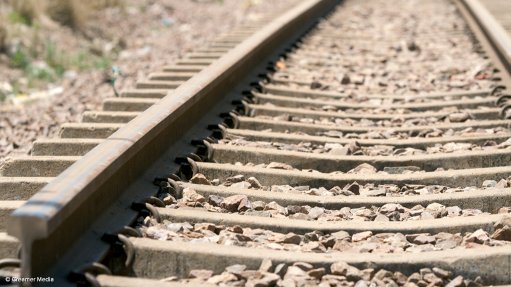
Photo by: Duane Daws
Continent-wide railway integration would not take place in Africa until there was a common development agenda at continent level, Zambia Railways CEO Professor Muyenga Atanga said on Wednesday.
He noted that there was evidence that rail integration in Africa was possible, as various countries on the continent were already connected through rail; however, there was a need to increase the scale of integration.
“For us, it is an issue of improvement. We are already connected between specific countries. [Now] we need to ensure that that connectivity is enhanced by opening all the corridors,” he said.
Speaking as part of a panel of speakers at the Africa Rail 2014 conference, in Sandton, Atanga noted that, while the leaders of many African countries were being proactive in setting up agendas, technocrats were still lagging behind in this respect.
He suggested that technocrats devise a rail development agenda that could be presented to governments and investors for adoption.
“We must pick it up and decide what we want to do and how,” he said.
TransNamib CEO Sara Naanda, however, argued that there would be no point in getting together as technocrats to plan the future of rail on the continent if there was no agenda set at African Union (AU) level.
Botswana Railways operations and engineering director Justice Ramontsho added that the AU did have "the muscle" to set such an agenda, but that the various issues facing the continent were drawing the union’s attention away from developmental matters.
Meanwhile, Naanda pointed out that, while African countries were quick to say that their customers preferred moving their goods by road rather than rail, this was the result of a disconnect in the rail system and could, therefore, be changed.
She emphasised that the rail sector was failing and that there was a need to break down the bottlenecks in the system and provide a one-stop-shop African rail service.
Further, Nigerian Railways Corporation MD Adeseyi Sijuwade stressed that standardisation would be an important component to creating an integrated continent-wide rail network.
He stated that there were 51 railway services operating in 36 countries across Africa, each using different technologies in terms of gauge and rolling stocks.
“We need to look at standardisation and, with this in place, [we will be able to] promote connectivity and encourage regional integration,” he said.
Sijuwade also noted that Africa did have some integrated initiatives in place, such as the Dakar–Port Sudan railway line, stating that the success of this line was a result of the parties meeting regularly and standardising the technology used.
“There is a lot of synergy,” he said.